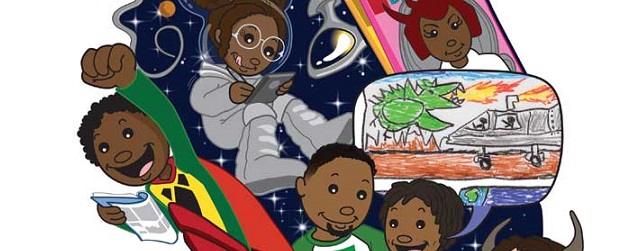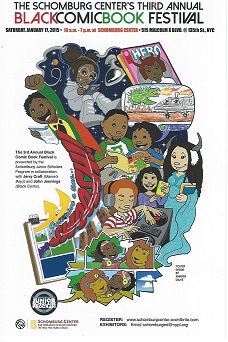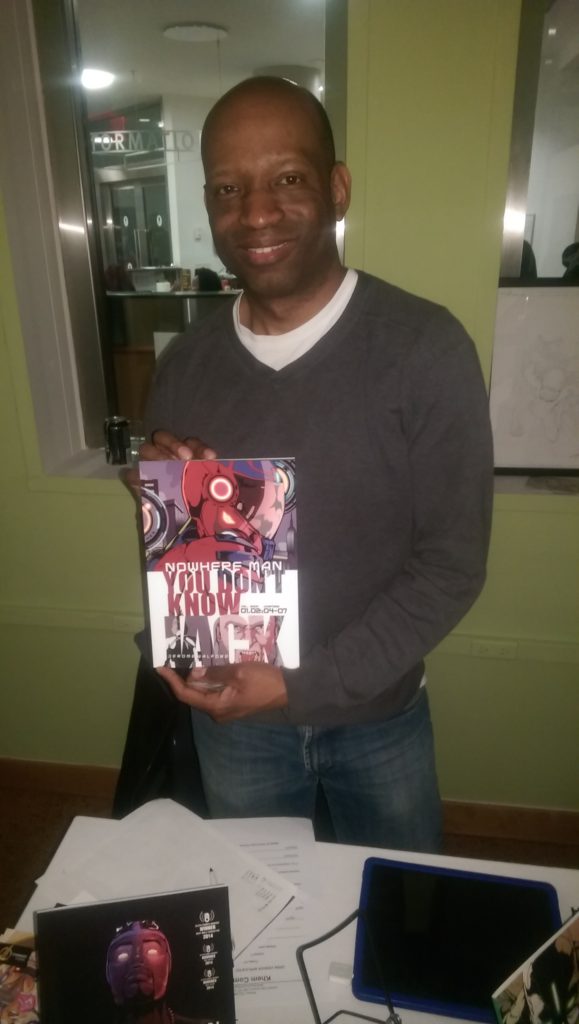[divider]
At this year’s Black Comic Book Festival in Harlem, there was a staggering amount of talent on display. Creators of color from every genre from super indie autobiographical to high tech sci-fi adventure were out in earnest showing off their craft and connecting with the audiences and other creators that make up the the east coast independent comics scene and it is Comic Attack.net’s distinct honor to feature some of these fantastic creators and their work in this latest instalment of our series Creators To Watch: Black Comic Book Festival Edition ’15
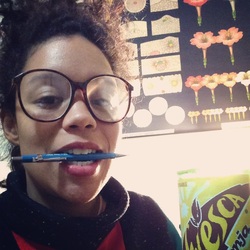
Whit Taylor Based out of Brooklyn and creator of Madtown High and Watermelon the later of which won a Glyph Award in 2012. Whit was at the BCBF meeting fans and promoting her latest book The Anthropologist. She creates autobiographical comic about her life growing up in northern New Jersey that are self-effacingly funny bearing a charm rich with honesty and insight.
CA: How did you get started in the world of comics?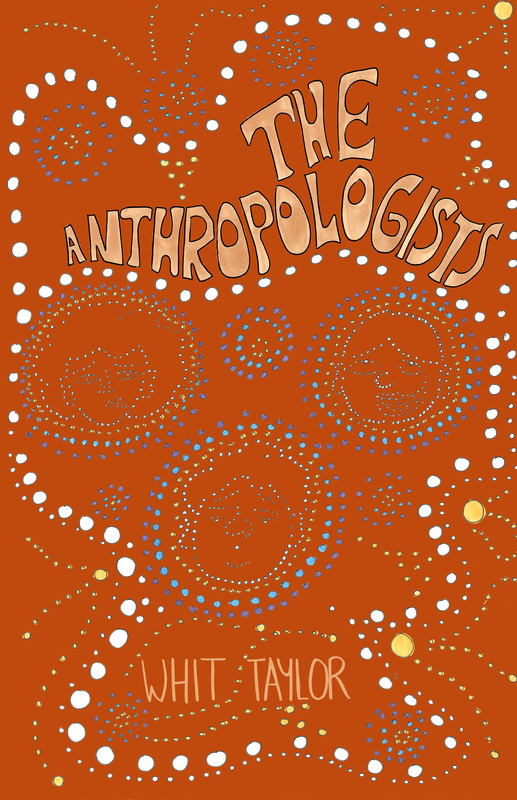
Whit: I started self-publishing autobiographical minicomics a few years ago and started selling them at small press shows when I lived in California. I’ve just steadily worked since then to put
out more comics.
CA: Do you see yourself striving for a more mainstream version of success with your work?
Whit: I strive to make the best work I can. Of course it’s nice for people to read my comics and support my work, but I try to remind myself to stay grounded in creating things that I value.
CA: Looking back, what’s a thing you wish you knew about your craft when your first got started creating?
Whit: A lot of things! Looking back at my earlier stuff, I wish I had been more mindful of my lettering, which was more like handwriting. They are not the same thing!
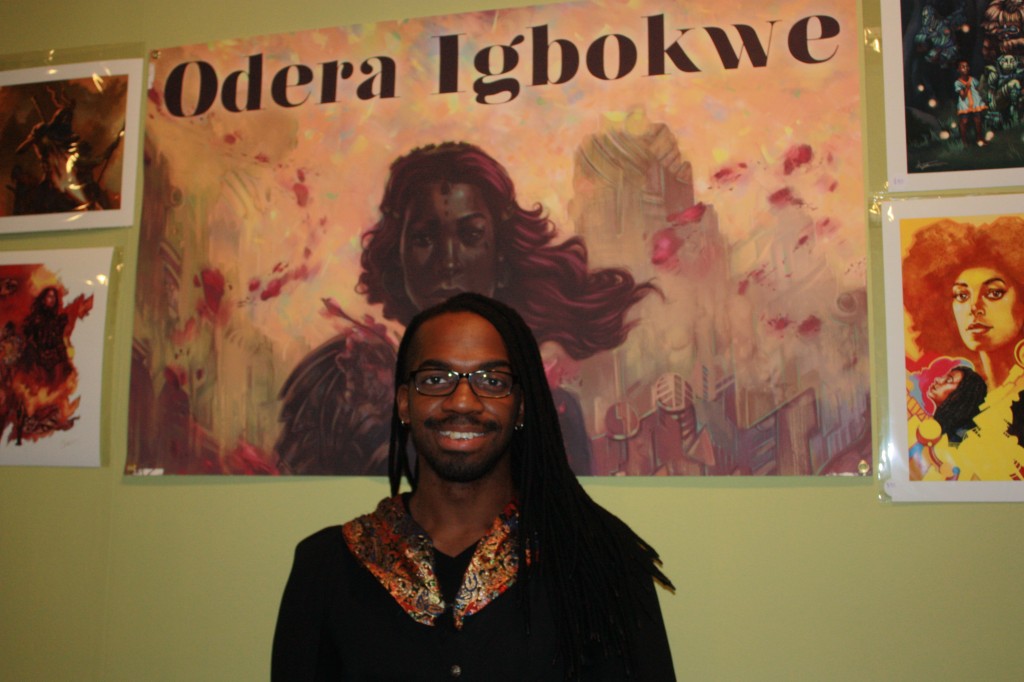
Odera Igbokwe
An illustrator and New Jersey native who grew up around comics and manga, Odera was at the BCBF showing of his gorgeous and imaginative artwork. A graduate of the Rhode Island School of Design, Odera does artwork that is both influenced by his background in West African Dance as well as his love of RPG’s and fantasy with a style reminiscent of fellow illustrator Frank Frazetta but with decidedly modern black edge.
CA: How has being a person of color affected how you view and participate in art or media production?
Odera: Being a person of color, specifically a child of the african diaspora, permeates through all pieces of my life because of intersectionality and all those
necessary concepts involving identity. My work has been described as “joyfully subversive” and I think getting to that point was as simple as 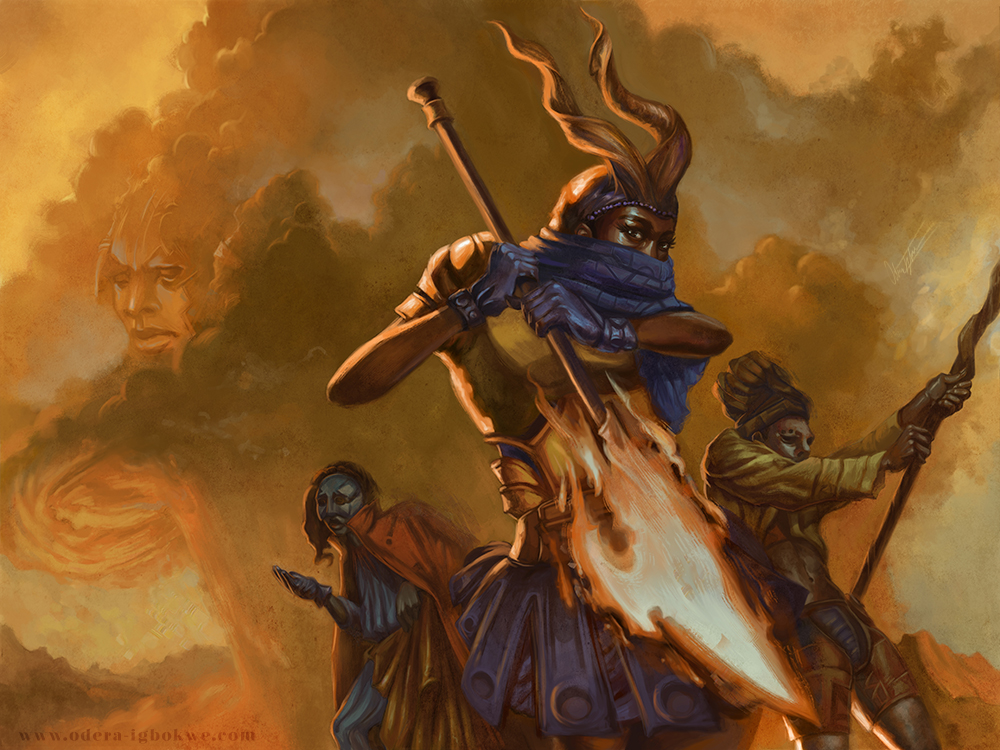 honoring my lived experience as a person of color.
honoring my lived experience as a person of color.
CA: How has your New Jersey/ Nigerian background affected your art?
Odera: I think it’s really important to not downplay the importance and vastness of the question “where are you from”. That’s a journey in itself. I was born and raised in New Jersey, but I have two nigerian immigrant parents.I’m not sure how my hometown has affected my art, perhaps a quiet suburban life pushed me towards introspection and reveling in fantasy worlds.However there is definitely a reclamation of nigerian identity in my artwork but mostly I am from the stars and the flame– I am a self prophesied contemporary mythology burning itself into reality.
CA: What is the most important technique in your craft?
Odera: Ritual, call and response, and the transference of energies. Dancing on the picture plane. I guess color sensibility and brushwork are important too.
Jerome Walford
A writer/illustrator in the tradition of Dave Gibbons or more contemporarily Brian Wood, his table at the BCBF simply lousy with visually striking and enticing books. A 2014 Glyph Award winner for best male character from his sci-fi/noir book Nowhere Man, Jerome publishes his gripping and asskicking tales out of his own imprint: Forward Comic.
CA: What do you feel is comic’s role in society?
Jerome: It’s incredibly multi-faceted. From the economic angle, it’s certainly one option for using one’s talents and skills to make an honest living. On the educational side, it can enrich our learning experience, and provide an avenue for communication. Broadly, from the artistic point of view, comic’s/art’s/media can be fantastic tools for 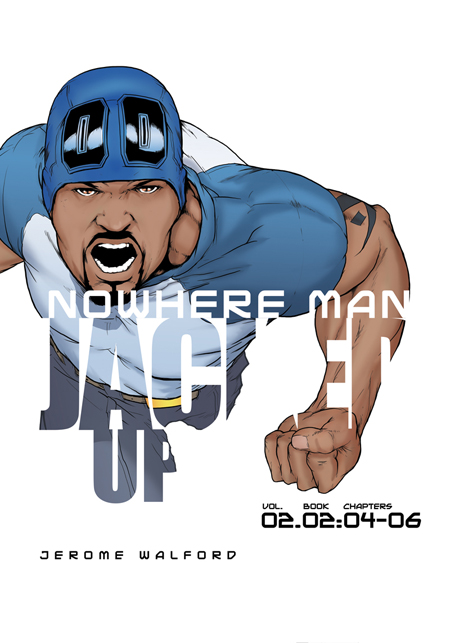 stirring conversation, soul searching and be outlets for expression. It is very tough to narrowly define the role of art but one thing we can be sure of is that these disciplines are incredible vital. A reasonable person can take an objective look at the arts within a society and postulate “If the media and arts are thriving, then the society, as a whole, is fairly healthy.”
stirring conversation, soul searching and be outlets for expression. It is very tough to narrowly define the role of art but one thing we can be sure of is that these disciplines are incredible vital. A reasonable person can take an objective look at the arts within a society and postulate “If the media and arts are thriving, then the society, as a whole, is fairly healthy.”
CA: What do you do you know now that you wish you knew when your first got started creating?
Jerome: I would list a few things:
1. It is a lot harder than it looks: Be prepared for a really long haul.
2. Don’t distract your audience or yourself with gimmicks or buzzwords (ie. transmedia, diversity, the next “fill in the blank”). Make a thoughtful, compelling story and the rest will fall into place.
3. Set achievable and measurable goals, and choose one or two of your best ideas.
CA: Who are some of your contemporaries that are putting out work you love?
Jerome: Unfortunately I don’t get to read as much as I used to. My production schedule has gotten very rigorous, putting out five 40-page trades thus far, and a few more titles that are currently in production. However, I love keeping tabs on N. Steven Harris, Robert Garrett, Caanan White, Afua Richardson and Jason Brubaker. These folks are putting out quality indie works. I’m truly inspired by their stories, determination and dedication to the craft.
[signoff]

